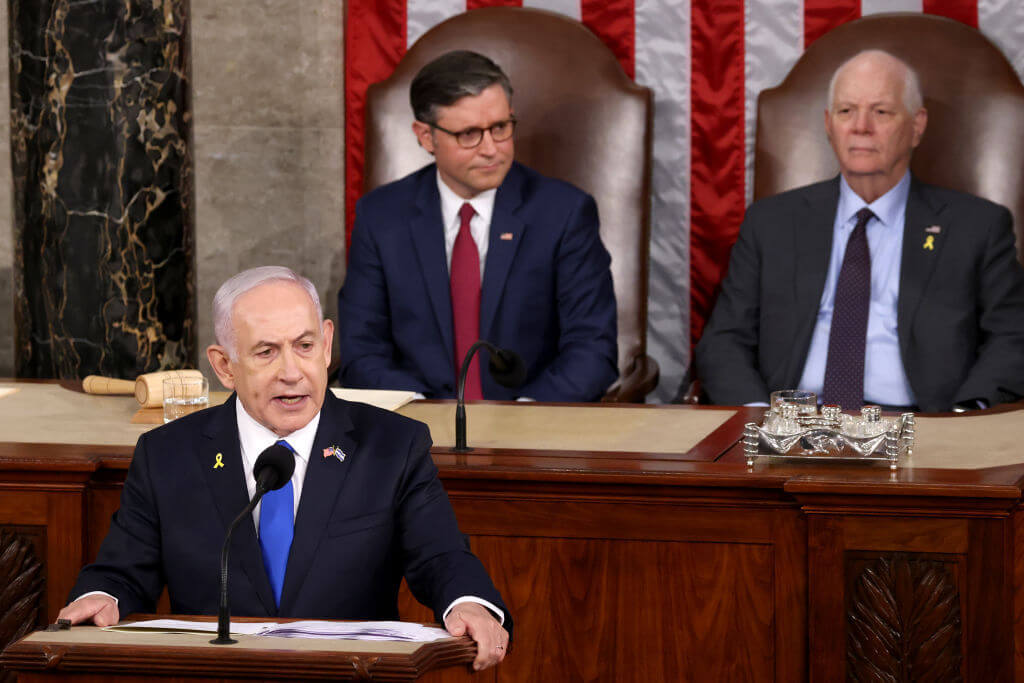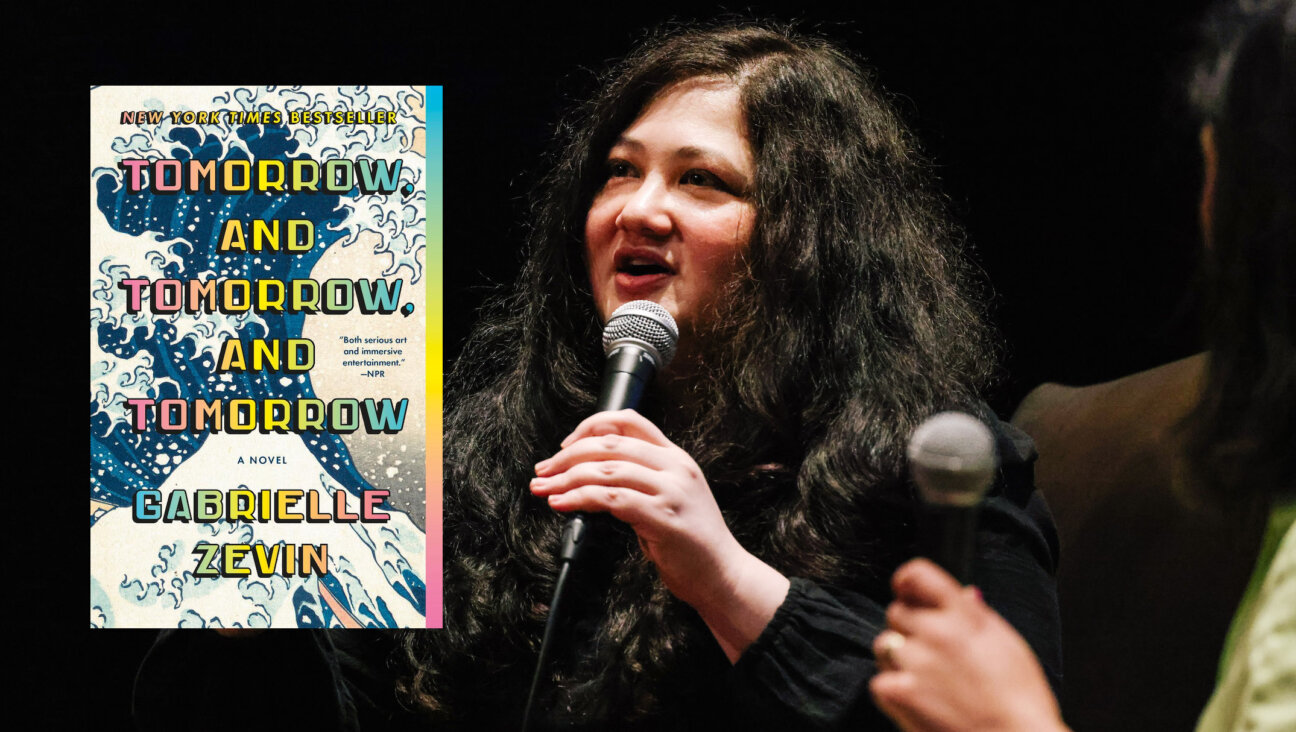Holocaust Museum Urges Ukraine To Examine Its History of Anti-Semitism

On Trial: Menakhem Mendl Beilis, whose blood libel trial took place in Ukraine in 1913, with his family in the Russian Empire of the 1910’s.
As Ukraine grapples with political upheaval and threats to its territorial integrity, the United States Holocaust Memorial Museum is confronting the country’s post-revolution government with another, no less difficult challenge: contending with its past treatment of Jews.
The museum has urged the new government in Kiev to set up an international commission to examine its troubled relations throughout the 20th century with the country’s Jewish community.
Aware of the country’s current turmoil, a delegation of museum officials visiting Kiev presented the proposal as an idea, not necessarily as an immediate priority to be implemented quickly. But according to museum director Sara Bloomfield, the initial response from Ukrainian officials was positive.
“In this country — you can’t really separate communism, Nazism and anti-Semitism,” Bloomfield said in a June 8 phone interview from Kiev. She noted that discussing anti-Semitism and teaching about it in Ukraine should span from the early twentieth century, including the infamous 1913 blood libel trial of Menachem Mendel Beilis through the Stalinist persecution of Jews and the collaboration of some Ukrainian nationalists with the Nazis during the Third Reich’s occupation of the country.
Bloomfield visited Ukraine during the first week of June to meet with representatives of the newly-elected government and with scholars and members of the Jewish community. Her talks focused on practical issues, including gaining full access to Communist-era archives. But Bloomfield also sought to begin a process of dialogue aimed at getting Ukraine to reckon with its own history.
“Ukraine is in dire need of a new, more honest and complex historical narrative that reflects all the difficult issues of its history, including its darkest chapters,” wrote Bloomfield and her colleague, Vadim Altskan, a project manager in the museum’s international archival program, in a Global Post op-ed published before their trip to Ukraine. “It will not be easy, but Ukraine has a unique opportunity to validate the importance of an honest reckoning with history, recognizing that only a democratic nation can guarantee the security, freedom and prosperity of all its citizens.”
Following her meetings in Kiev, Bloomfield was cautious despite the positive response from Ukrainian officials to her idea of establishing a commission. “The reality is that right now, the country has many very urgent issues to deal with,” she said.
Bloomfield’s proposal is modeled after a similar endeavor in post-Communist Romania. The International Commission on the Holocaust in Romania, which concluded its work in 2004, was chaired by Nobel laureate Elie Wiesel, Romania’s most well-known survivor, and was made up of international experts. It produced a 400-page report that not only set the record straight regarding the number of victims and the role played by Romanians in aiding the Nazis, but also provided recommendations regarding Holocaust education and remembrance in Romania.
For Ukraine, such a commission would require a broader mandate, looking not only at the Holocaust but also at a history of anti-Semitism and hostility toward Jews before and after the Nazi takeover.
History has made Ukraine one of the most complex European nations when it comes to defining its relations with the Jewish community. Occupation by foreign powers and territorial divisions often resulted in outbreaks of violence, some of it state sponsored, against Jews living in the affected areas.
If established, the international commission will look not only into the Jewish aspect of Ukraine’s 20th-century history, but also at the country’s relations with Poland and Russia, at its nationalist movement and at the events of the Stalinist era.
Taken together, all these aspects make the task of launching a national inquiry ever more difficult.
“It should be done, but it cannot be done now,” said Zvi Gitelman, professor of political science and the Tisch Professor of Judaic Studies at the University of Michigan. He explained that Ukraine’s World War II history is “deeply intertwined” with Ukrainian nationalism. Given the critical situation Ukraine is in now, he said, “raising this issue would further complicate an already tenuous situation.”
Attempts to produce a historic narrative of Ukraine’s past during the Holocaust are already taking place outside the country. The Holocaust museum recently hired staffers to work on the issue. A Canadian-based initiative, the Ukrainian Jewish Encounter, has also been bringing together historians and scholars for a decade for the purpose of producing a written history of the country’s 20th-century experience with its Jewish population.
Among the most important tools for examining Ukraine’s past are the KGB archives containing endless documents from the Communist era. Researchers trying to learn about the Holocaust in Ukraine are interested especially in the trove of trial records contained in the archives. Most are of Ukrainians who were alleged to have collaborated with the Nazis and were persecuted by the Communists after the war. So far, the Holocaust museum has digitized some 200,000 documents, which still make up only about 1% of the entire collection. Altskan estimated that once launched in full speed, the process would take five years.
Holocaust museum officials have been in touch with the Ukrainian government for more than a decade in an attempt to reach an agreement that would speed up the process and allow private contractors to carry out the digitization work. But previous governments in Kiev have shown little willingness to help. “It was pure business, not ideology,” said Altskan, who explained that the ousted government of ex-president Viktor Yanukovych “was very reluctant to work with us, because it was a very corrupt government and they had nothing to profit from working with us.”
Besides the trial records, the Ukrainian archives also contain operational records of surveillance and investigations conducted by the Communists, as well as German documents that fell into the hands of the Soviet forces as the Nazis retreated.
Contact Nathan Guttman at [email protected] or on Twitter, @nathanguttman
























